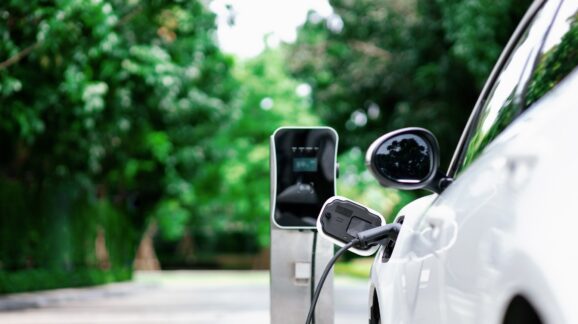PATNODE: Beyond Biden’s War on Cars: Analyzing New Jersey’s Electric Vehicles Mandate
States have been enacting extreme policies to limit the availability of gas-powered vehicles, surpassing even the Biden administration’s efforts at the national level.
New Jersey recently joined the band of states following California’s lead to ban the sale of new diesel and gas-powered vehicles. The state’s “Advanced Clean Cars II” rule (ACCII), which was adopted by the New Jersey Department of Environmental Protection (DEP), requires that any new cars and light-duty trucks sold be electric vehicles by 2035.
New Jersey Governor Phil Murphy pledged in his announcement to “utilize every tool at our disposal to combat the intensifying climate crisis.” The problem, aside from his dubious “crisis” claim, is the practical problems of such a rushed, nine-year phase-in.
For one thing, electric vehicles are far from ready for prime time. As we have seen this winter, electric vehicles have a charging problem when temperatures drop, which could cause major problems for one-car households if that car is electric. According to a Manhattan Institute report on electric vehicles, their mileage is about 30 percent worse when the weather is 20°F versus 80°F, because battery electrochemical reactions are slow at lower temperatures. There’s only a 5 percent drop in fuel efficiency for internal combustion cars over the same temperature range.
Another problem is the uncertain ability of electric grids to support an increased number of electric vehicles. Requiring the automotive industry to start selling more electric cars and encouraging people to buy the cars with government subsidies before the electric grid can reliably handle the increased demand is an obvious recipe for disaster.
A 2023 report co-authored by the North American Electric Reliability Corporation (NERC) warns of the potential for grid disruptions if electric vehicle charging equipment does not play well with the bulk power system. Tellingly, during a 2022 heat wave, the California government asked electric vehicle owners to not charge their cars to reduce stress on the grid.
Business interests in the state already see the government mandate as a major problem. Ray Cantor of the New Jersey Business & Industry Association objected in a statement that the ban on the sale of new gas-powered cars does not take into account costs or feasibility, lack of local and highway infrastructure, grid capacity, or consumer choice.
Read the full article on Delaware Valley Journal.
